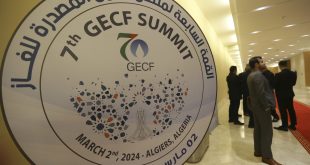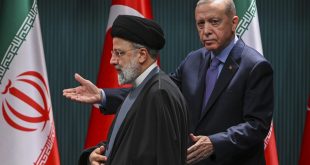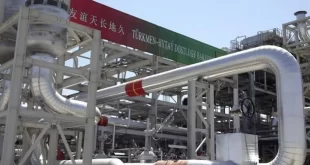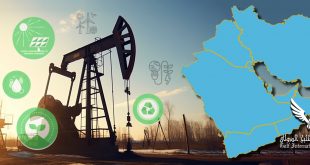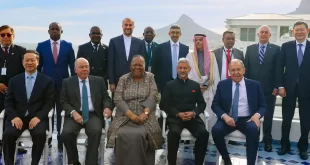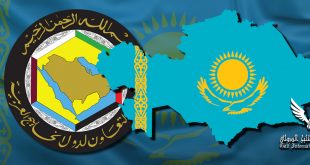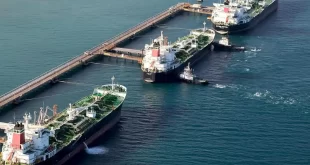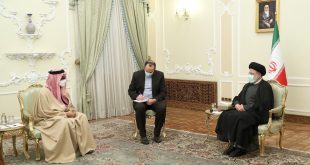On the heels of its latest forum in Algiers, the Gas Exporting Countries Forum (GECF) has grown substantially in size and influence, highlighting the essential role of natural gas in balancing global energy, promoting sustainability, and addressing market volatility, technological challenges, and geopolitical tensions. The 7th Gas Exporting Countries Forum (GECF) Summit in Algiers …
Read More »Building Bridges: Iranian-Turkish Economic Unity Amidst Security Rifts
Turkey and Iran have expressed a clear interest in improving their bilateral economic relations, but remain divided over a range of geopolitical and security issues, to which answers remain elusive. EmailPrintFriendlyPaylaş Iranian President Ebrahim Raisi, left, and Turkish President Recep Tayyip Erdogan leave after a joint news conference following their …
Read More »Iran’s Hydrogen Fuel Production Plans Face Significant Hurdles
Iran currently lacks a substantial presence in the burgeoning hydrogen industry, despite its abundance of natural gas and renewable energy potential. Utilizing renewable energy sources such as solar or wind power, “green hydrogen“ is produced by electrolysis, which produces hydrogen without any emissions. This contrasts with traditional techniques that release carbon dioxide. Experts anticipate …
Read More »Turkmenistan Stops Gas Exports To Iran Amid Winter Cold
Iran’s already significant winter gas shortage has been exacerbated by Turkmenistan’s decision to halt gas deliveries to Iran, including gas swaps with Azerbaijan this year. This has created a challenging situation for Iran, which is struggling with a severe gas shortage during the winter months. The breakdown of these gas-related …
Read More »Navigating New Horizons: The Gulf’s Dynamic Energy Landscape in 2024
In 2024, the Gulf’s energy sector is poised at a critical juncture, balancing the traditional reliance on hydrocarbons with ambitious strides toward renewable energy and economic diversification amidst global economic fluctuations and regional geopolitical tensions. The Middle East played a significant role in the global energy market in 2023, navigating the delicate …
Read More »Iran Claims Lower Unemployment But Numbers Say Otherwise
Iran’s Statistical Center recently announced a decline in the country’s unemployment rate to 7.6 percent this fall from 10.6 in the same period in 2019. The report didn’t explain the reason for the decline, but, a comparison of the new numbers for the labor force (employed or seeking jobs) with …
Read More »Iran Becomes A Member Of BRICS, With Hopes And Challenges
Iran officially became a member of the China-led BRICS economic organization on Monday, as it seeks to overcome the impact of US sanctions and overcome it isolation. In its policy of finding shelter under Chinese and Russian-dominated international organizations, Iran achieved full membership in the Shanghai Cooperation Organization in July 2022 and …
Read More »Gulf States’ Opportunities in Kazakhstan’s Emerging Economy and the Middle Corridor
As the world’s great powers and the GCC states cast their attention toward the region, the nations of Central Asia could play a major role in facilitating trade between Europe and China. When U.S. President Joe Biden and Chinese President Xi Jinping met in San Francisco to patch up Sino-American …
Read More »Iran Sees Less Income From Oil And Gas Exports In The Coming Year
ran’s draft budget for 2024-2025, presented to the parliament, reveals a significant decline in oil and gas export revenues, and a surge in domestic energy prices. The bill outlines a projection of 1.35 million barrels per day for oil exports at an average price of €65 per barrel (approximately $71) …
Read More »Water Diplomacy Woes in the Persian Gulf: Navigating Water Scarcity in the UAE and Iran
Water crisis in the Persian Gulf presents a multifaceted challenge, as it plays a critical role in climate adaptation and mitigation, environmental damages and conflicts in the region. The varying water scarcity challenges among Gulf countries raise questions about how it will affect their collective efforts against water scarcity. As COP28 …
Read More »
